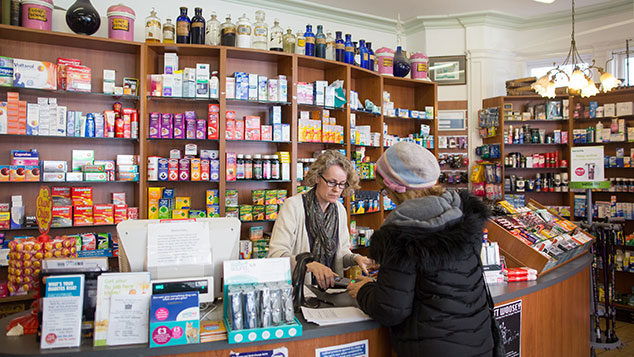
One of the big issues in the debate over a post-Brexit deal with the EU is the extent to which we need continued access to the single market – being a member of the single market allows British firms to avoid many regulatory barriers when selling goods to the rest of the EU.
While it’s important for the financial sector, other parts of the economy could be affected if we end up being hit by restrictions. One sector that could be affected is the pharmacy sector.
To get an idea of how pharmacies could be affected, we talked to Shamir Patel, founder and director of Chemist 4 U. Set up in 2001, and run from Skelmersdale, Lancashire, it sells prescription medicines, as well as health and beauty products, over the internet. It currently employs 64 staff and has a turnover of £17m.
Patel says that, so far, Brexit has been good for his business, which has surged since the referendum. This is due to the fall in the value of sterling, which has made prices in Britain cheaper when compared to those in other countries. There has been a strong increase in demand from the EU, with prescriptions written by European doctors making up most of the extra sales, although non-prescription items, such as smoking cessation aid Nicorette and hair replacement treatment Rogaine are also popular.
Many of these customers are from Germany, which banned online prescribing last November, in order to protect physical pharmacies. Of course these rules simply mean that, “German people buy from online firms here instead”. France is another major European market, thanks to rules that ban its domestic pharmacies from sending prescriptions through the post. Overall, the proportion of Chemist 4 U’s sales that are to people living outside the UK has increased from 40% of total orders before the vote, to 60% at the moment.
However, this surge in overseas sales presents Patel with a problem. At the moment, free movement of goods within the single market means that Germany can’t stop imports of prescription drugs, nor can it charge additional customs duties. The problem is that if Britain leaves the EU without some sort of deal, Germany would be free to impose controls. This could cost Chemist 4 U a large chunk of business. Patel’s only hope is that “some sort of agreement can be reached that would keep goods flowing”.
The single market has also forced the government to pass legislation allowing British pharmacies to automatically fulfil the prescriptions of EU citizens, without the need for a consultation with a UK doctor. For example, “ten years ago, if a French tourist left her blood pressure medicine at home, we wouldn’t be able to renew it without her taking a trip to A&E”, which would waste NHS time and money. He hopes that once the UK leaves the EU, the government will be willing to retain similar rules, rather than going back to the previous, inefficient system.
Like other entrepreneurs, Patel is concerned about the effect of Brexit on his workforce. Around 40% of his staff don’t have UK passports, including staff from Sweden and Romania, so it “would really be a big blow to us if they left, or were forced to depart”. Indeed, many of his staff, especially those from countries in Eastern Europe and the Baltic, such as Latvia and Lithuania, have already decided to leave due to the effects of the currency devaluation.
Of course the issue of resolving the status of EU staff working in the UK isn’t just a problem for Chemist 4 U, but a problem for the sector as a whole. Patel notes that outside the big chains there “a large number of EU pharmacists within the UK”, most notably from Spain. This could be a particular problem if there was a sudden increase in the number of prescriptions, due to a public health crisis, for example if there was an outbreak of swine flu.